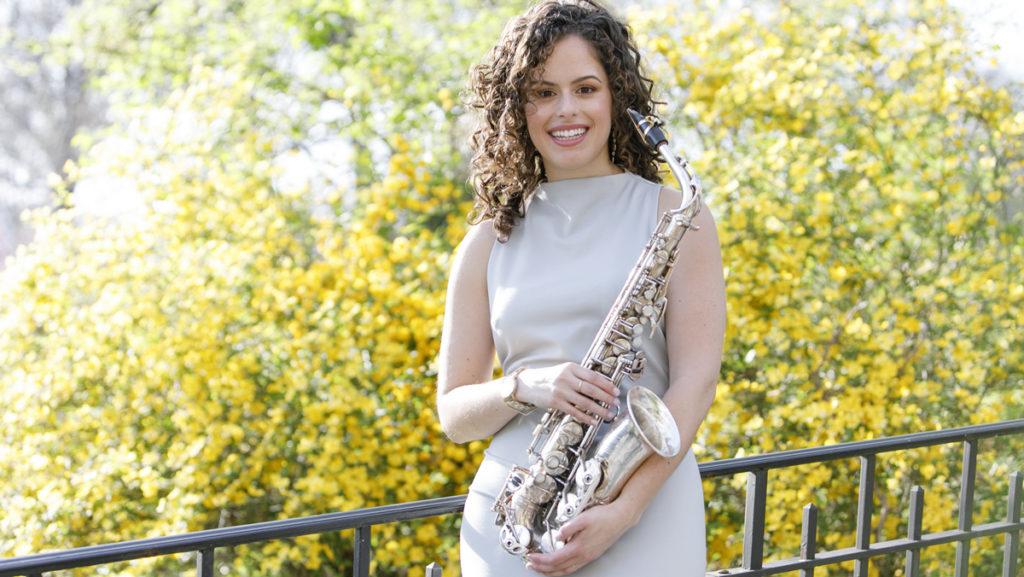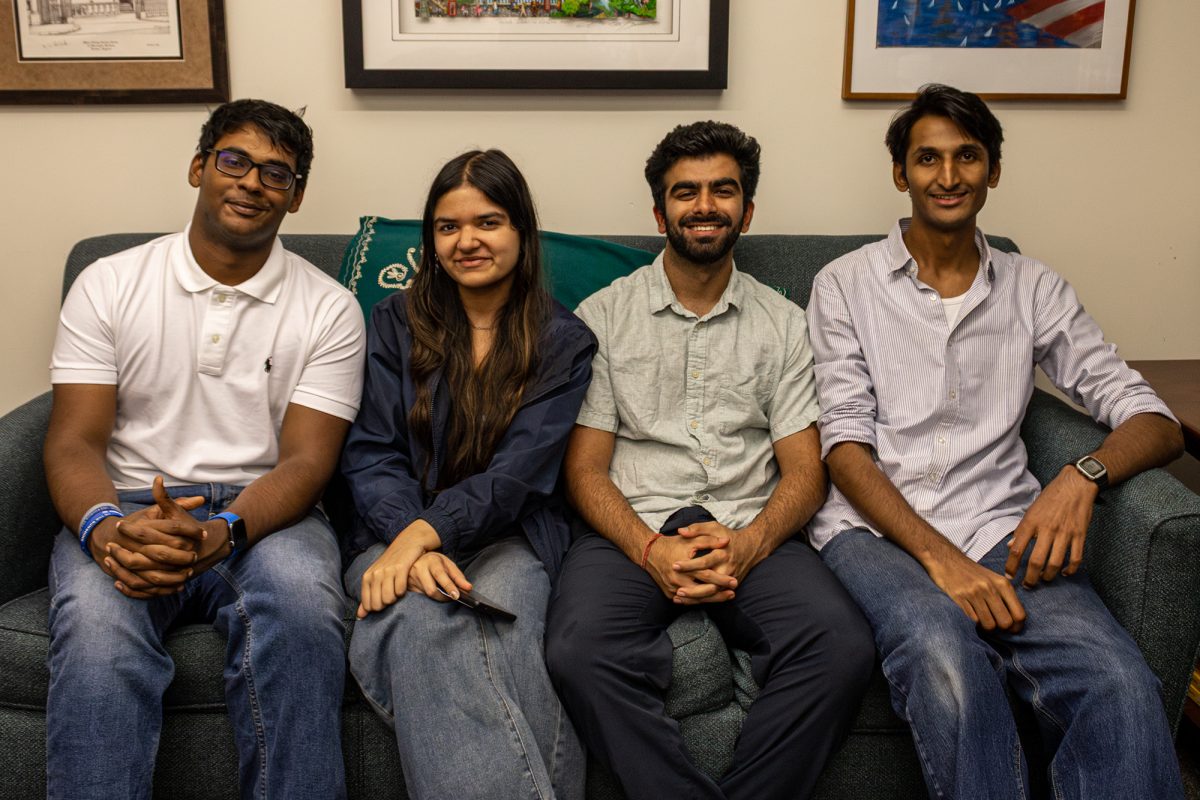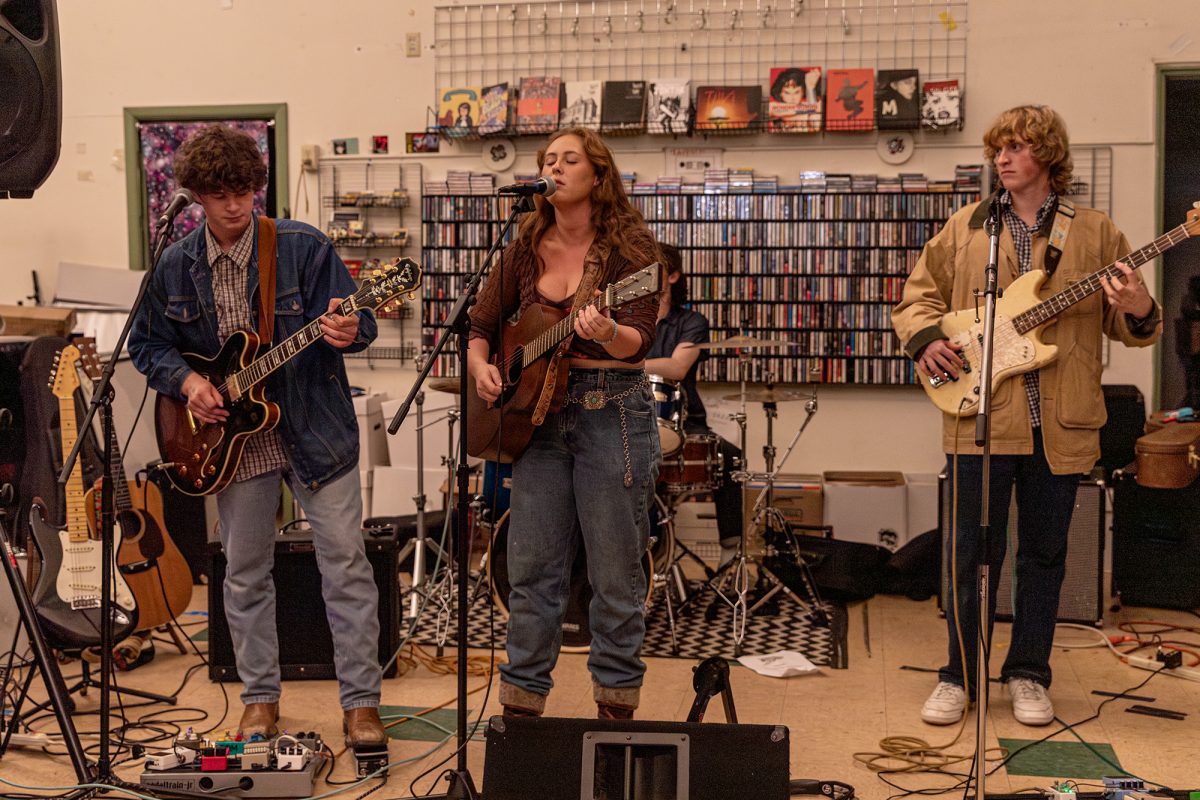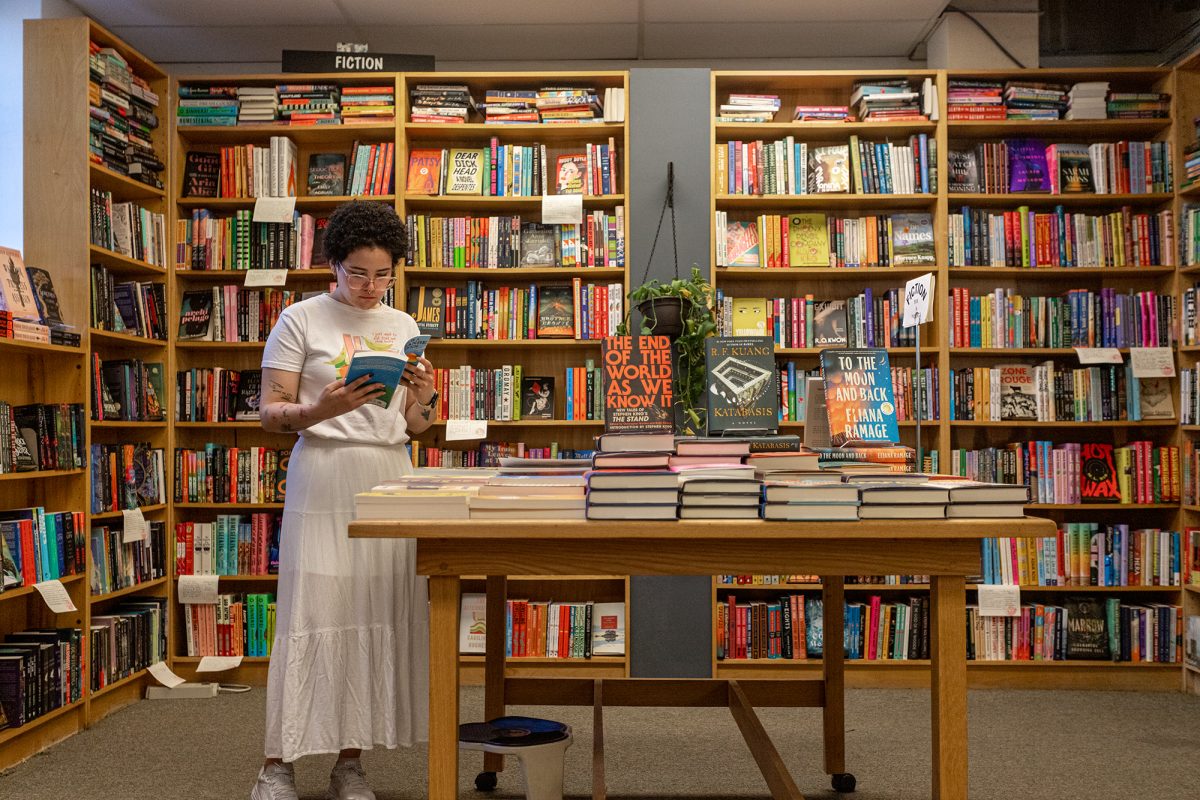The origins of Alexa Tarantino, a guest saxophonist at Ithaca College, as a jazz artist trace back to her hometown. Tarantino grew up in West Hartford, Connecticut, where she started playing the saxophone and piano as a kid. Her elementary school instrument then turned into her career — one based on collaboration and music education, she said.
Tarantino has participated in both large and small jazz ensemble performances and recording sessions around the country. She has also become a recurring member of the Jazz at Lincoln Center Orchestra. Tarantino will perform in a concert at 8:15 p.m. Feb. 29 in Ford Hall in the James J. Whalen Center for Music with the Ithaca College Jazz Ensemble.
Assistant Life & Culture editor Arleigh Rodgers spoke with Tarantino about her inspirations for her music, her frequent travels and an upcoming album.
This interview has been edited for length and clarity.
Arleigh Rodgers: What sparked your interest in [piano and saxophone]?
Alexa Tarantino: The town that I grew up in — West Hartford, Connecticut — had a really strong … jazz program in particular. So I would see their concerts, and I actually saw a young woman playing the saxophone in … one of those groups when I was in fifth grade, and that’s how I decided to play saxophone. And one of my grandparents was a pianist, so that’s why I started a piano.
AR: What kind of educational situations [do you participate in]?
AT: I’m a freelance guest artist a lot of the time, so I’ll be a guest at many universities or summer programs or high schools, colleges, things like that. And then I run my own summer jazz workshop in Massachusetts, and that’s called the Rockport Jazz Workshop. And I work at Jazz at Lincoln Center [Orchestra] as an educator and saxophonist for them, so I’ll travel on their behalf doing clinics and things like that.
AR: What is it like to perform with the Jazz at Lincoln Center Orchestra?
AT: It’s awesome. It’s a really great time. I’m not a full-time member with them. … I’ve been there when they need me, but I’m really grateful to have the opportunity.
AR: What is the upcoming album you have [planned]?
AT: It’s on a label called Posi-Tone Records. I’m not sure what we’re going to call [the album] yet, but it’ll be out in May, and it’s original music. I’m playing multiple woodwinds, and it should be fun. We’ll be … doing a CD release in New York at Dizzy’s Club in June.
AR: What was it like to work on the album?
AT: I’m currently in the mixing process, so I’m listening to the mixes and tweaking things, but I wrote all the music a little bit quickly, kind of fast for the project. … It’s still straight–ahead jazz with a few of my favorite standards in there. … I was really excited to hear it come to life, and I had an awesome band with me, and … I’m really happy to make the music and hope people enjoy it.
AR: Do you think there are any influences, or particularly some people, … that have influenced your work?
AT: Well, Wynton Marsalis is definitely a huge influence, and my family [is an influence]. … There [are] so many jazz musicians that have influenced me. It’s kind of hard to pick some. A saxophonist named Phil Woods was one of my favorites, and a woman named Maria Schneider, who has her own jazz orchestra, was one of my favorites.
AR: Do you travel to colleges or universities often to perform or teach?
AT: I travel multiple times a week, so, right now, I’m at the University of Northern Iowa. Last week, I was in Wisconsin at Sun Prairie High School. Before that, I was in Chicago at New Trier High School. And before that, I was in the North Shore of Massachusetts and a few high schools there. Before that, I was conducting the Arizona All–State Jazz Band.
AR: What are you looking forward to most about your upcoming performance at Ithaca College?
AT: Oh, well, I’m certainly excited to be in Upstate New York, … and I’m excited about … the fact that [the Ithaca College Jazz Ensemble’s] performance is all by ear, so they’re not using music, which I love. … It’s an interesting style of learning, and I think everybody should experience it. … It’s definitely quite a feat to do it at the large ensemble level.














